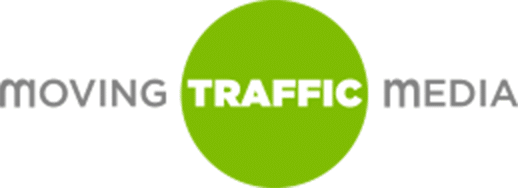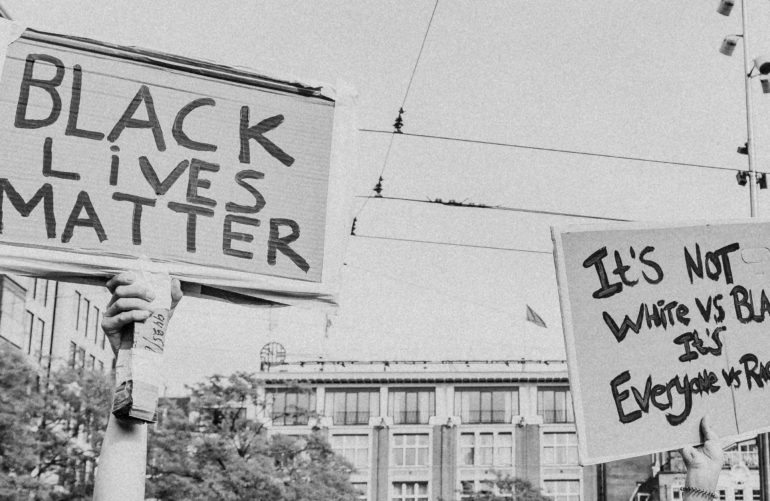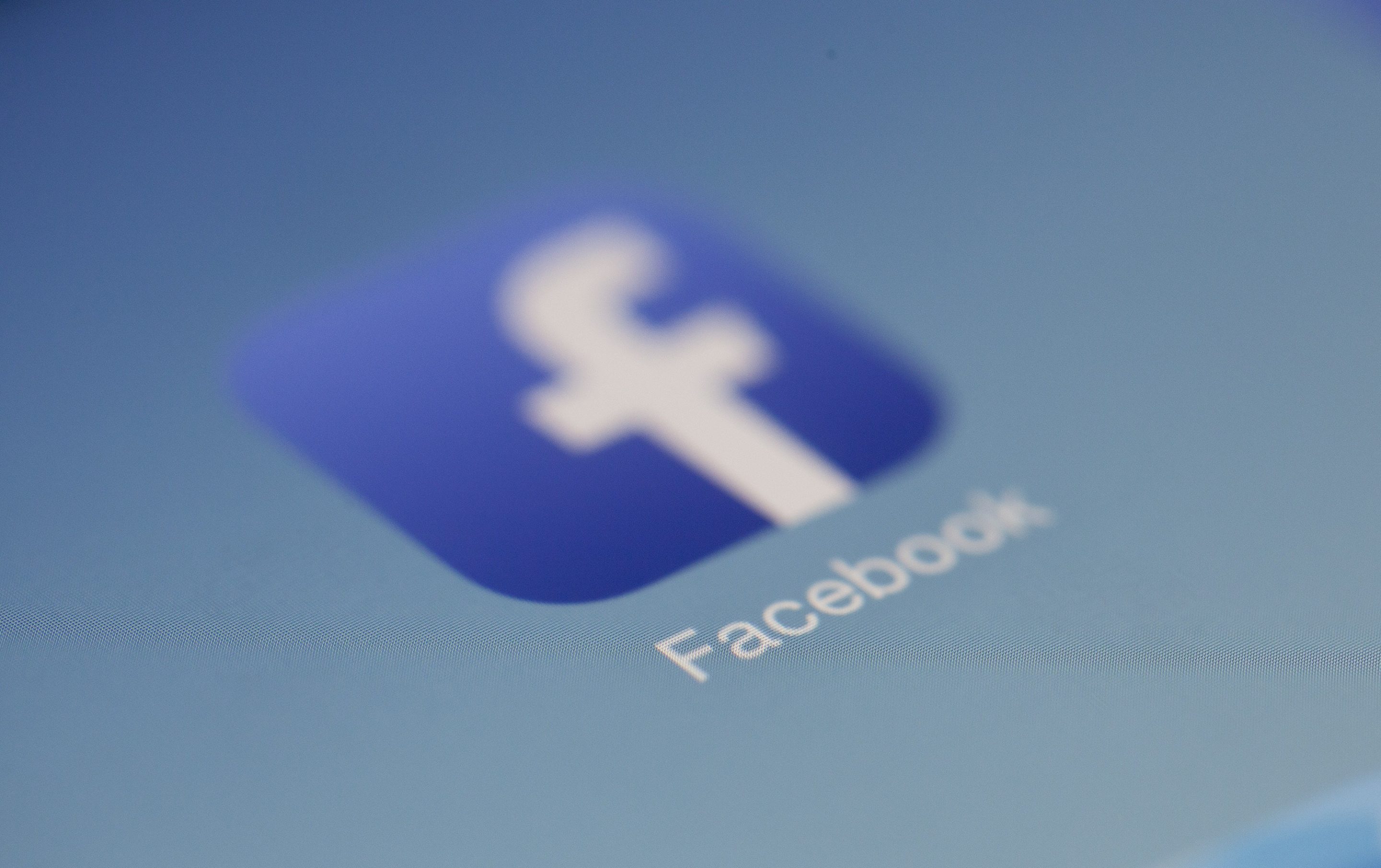Recently, two software as a service (SaaS) companies cut ties to organizations that many believe promote hate or commit human rights violations. The first was Hotjar, which was publicly pressured into dropping the Trump campaign as a client, and the second was Hootsuite, which had a three-year contract with ICE until an employee spoke up about the deal.
In their press release about their decision, Hotjar announced, “We have updated our Acceptable Use Policy to disallow not only sites that directly promote or condone hate, but also sites that promote or support organizations, platforms, or people that promote or condone such hate.”
We’ve written about how doing good can help your brand, and the best ways to do so. We’ve also put together anti-racist actions for digital marketers. But all this made us wonder if part of what it means to do good as marketing professionals to publicly endorse causes like Black Lives Matter (BLM) while turning down work with clients who publicly contradict these causes.
Hoping to start a conversation, we decided to get the thoughts of some people we respect. We prompted each participant by asking: “Do you believe marketing professionals or influencers have a responsibility to be vocally pro-BLM in the work world? Should this include turning down opportunities for your digital marketing or SaaS company if the client has been vocally anti-BLM in some way?” Some answers were edited for length.
Contributors
- Rand Fishkin: SparkToro Co-founder & CEO; previously, Moz CEO & Co-founder
- Milly Tamarez: Comedian and social media consultant. Diverse as Fuck Comedy Festival co-Founder, #DiversifySocialMedia co-founder
- Cyrus Shepard: ZyppySEO founder
- Dr. Pete Meyers: Marketing scientist at Moz
- Luke Carthy: eCommerce growth consultant; SEO & CRO specialist; afrodrops founder
- Lauren Clark: Writer, performer, and entrepreneur. Creator of The Black Creator Connection, a community, podcast, networking, and education opportunity for Black creators
- Jamie Alberico: Technical SEO, not-a-robot.com
- Rejoice O: Global SEO Account Manager & Co-Founder of B-DigitalUK
- Alan Bleiweiss: Forensic SEO Consultant
Rand Fishkin

My opinion is that this is less about what marketing professionals or influencers have a responsibility to do, and more about how human beings should behave. Our obligation as people is to be as ethical and moral as we can — to promote goodness and kindness first, especially ahead of profit. Otherwise, you’re prioritizing greed ahead of ethics, and that’s the very definition of evil. This isn’t about marketing or ROI, it’s about recognizing humanity’s obligation to give those who’ve been hurt by the evils of history our empathy, kindness, and help. Black Lives Matter is just that. And if an organization is taking actions that are greedy, evil, and wrong, we should absolutely boycott them, call them out, and urge them to do better before we give them our business. Likewise, when companies and individuals make hard decisions (like Hotjar did) to put ethics ahead of profit, we should be equally vocal in our support.
As James Baldwin said, “Not everything that is faced can be changed. But nothing can be changed until it is faced.”
We can face the evils of our past and present, and put pressure on those around us to do better.
Milly Tamarez:

It’s tough because so many thought leaders in digital marketing are grifters. Some people do have expertise in the science of marketing, but a lot of people sell their own success and profit off that.
What they don’t discuss is family money. And a lot of them are also white people who didn’t have to grow up with systemic racism and obstacles that many young people of color have to deal with. So then they’re like “If you worked as hard as me, you can make it.” Sometimes I feel that they can even be predatory.
I feel, at the very least, you should definitely say it [Black lives matter], but what does it matter if the entire basis of your business is to prey on people?
—
There’s a huge racial disparity in marketing in general. Most of these accounts are by white people. The industry, and even in agencies like ones I’ve worked in, they’re marketing to people of color. They know the power of the black dollar. And they’re writing ads for people of color– Black people, Hispanic people, Asian people — but the teams are mostly white people.
What struck me was that, post George Floyd, people were in the space brainstorming, “How is your company talking about racism?” but then their entire team has made no effort to, like, hire Black people or give back to the Black community. They’re just making a poster or a statement.
I feel like, yes, of course, we should all be saying, “Black lives matter,” But I think the point of Black lives matter, at least for me, is that it’s very easy to just say, “Black lives matter,” but the reality is that racism is everywhere, in every industry, in everything. That can sound very depressing, but it’s also inspiring because we have the power in our environments to make change.
If we’re hiring more people of color, more Black people, and our teams are as diverse as the country, then we wouldn’t have to scramble and ask, “How do we do it [talk about Black lives matter] in a tasteful way?” And not just hiring one person of color on a team at the entry level and not giving them any power to speak, but having people of color all the way up to the leadership of companies. That’s how we can affect change in a bigger way.
—
Work with whoever you want, take whatever contract you’re going to take, but be prepared for the backlash. I don’t want to work for a company that doesn’t value my experience.
And even if Trump wins, the pendulum will swing back. And then you’re going to have all these brands, companies, and people trying to backtrack and say, ”I didn’t really believe in the Trump thing.” It’s our responsibility to not let them. We got to keep the receipts.
Cyrus Shepard

I would personally, and without hesitation, turn down any work from a client who’s vocally anit-BLM. But I also realize this is a privilege. Not everyone can afford to turn down work. Not everyone can afford to be vocal. Many agency owners I know are struggling to simply keep the lights on and pay their employees’ health care premiums without further cutting staff. That said, while I can’t bemoan anyone who chooses silence for these reasons, I likewise can’t abide by businesses that choose profit over principals. If you remain silent because it’ll cut profits from 20% to 17%, maybe you aren’t such a strong ally after all. Remaining neutral, when you have other options, is often the weaker choice.
Dr. Pete Meyers

Hard questions, to be sure, and certainly on my mind a lot in 2020.
First, I absolutely believe that our personal ethics should extend into our professional lives, or what’s the point? I don’t hold everyone personally responsible for everything their employers do (especially working-class people just trying to get by), but I also think that the work/life separation in our culture has created space for some truly awful things. If we keep falling back on “it’s just a job” or some such, while our employers ignore or even contribute to the awfulness and injustice in the world, then we’re part of the problem. Companies, large and small, are deeply influential forces in our society that have perpetuated terrible wrongs at times.
As a consultant, I certainly made some mistakes early on, when money was tight, and worked for industries that don’t reflect my values (the gun industry, for example). As I’ve gotten older and more established, I’ve tried to hold myself more accountable. I recently parted ways with an old friend and client due to a history of statements that I could no longer ignore as “just politics.” As allies, we can’t just do what’s easy. It’s like when an author or artist says something deeply problematic and someone says, “I never liked their work anyway, so it’s no surprise that they’re [racist, sexist, homophobic, transphobic, etc.]!” That’s nothing more than self-congratulatory back-patting. It takes nothing to discard an artist whose work you don’t like. The real work is putting aside the work we love — or the clients who cut our checks — when continuing to work with them devalues other human beings.
—
As a SaaS company, it’s harder — and I hesitate for that to become an excuse. Moz, for example, has tens of thousands of customers. To be totally honest, we don’t even know what industry some of those customers are in, due to our self-service model. We could say “Well, if we learn a customer is problematic, we’ll act on that,” or something, but that’s a cop-out, IMO. So, our approach has been to actively put our values out into the world. That’s meant losing customers, but if someone is going to leave us over a pro-BLM stance, that’s all we need to know. The least we can do to help is not to take their money. That’s not enough, though, and we’re working to do more.
Do we as a company or I as an individual always get it right? Absolutely not. I’m a 50-year-old, straight-cis white guy, who has been fortunate in life. I try to keep learning and listening, and I’ll keep trying to do better.
Luke Carthy

I personally think it’s a choice that’s down to the individual rather than an inherent responsibility to do so. For me personally, I’m particularly sensitive and selective as to when and how I make my thoughts and feelings heard on the topic of BLM. Additionally, in my opinion, there are right and wrong ways to make your opinions heard.
When I’m triggered or personally impacted by something, I’ll make my voice heard. Especially if what I’m seeing is intended to offend or directed at those from an ethnic background. However, on occasion, an issue can be due to a lack of education or lack of awareness. I feel it’s best to discuss it more discreetly with the organisation or individual first rather than making an assumption that their intention was to hurt or be derogatory towards BLM or any other PoC.
—
This follows on from my last response. In a situation like this, where a company or individual is going out of their way to be anti-BLM, I’d refuse to be associated with them in any capacity and I may decide to be more vocal if I feel it’s important to do so.
For example, I’m launching an online store and eCommerce brand, afrodrops, which is unapologetically celebrating and embracing natural afro and textured curly hair. Why? Because supermarkets in the UK haven’t accommodated for afro and natural curly hair for years. Afro hair oppression is real, and I want to be the change that the hair care (and wider beauty industry) so desperately needs.
Ultimately, it’s important to remember that one Black person can not speak for all. The same is true of any minority or group of people. It’s down to the individual and their feelings towards what they’re exposed to.
Lauren Clark

I believe marketing professionals and influencers have 100% responsibility to be vocally pro-BLM in the work world. Not just, “because it’s what’s happening now”, but because in the past they haven’t been vocal enough and it’s got Black professionals STILL feeling fed up, drained, sad, and angry– this is not a problem we created and yet we are the loudest. Not okay. I see things changing a little bit, but things have died down since April/May and with the results of Breonna Taylor’s case and the election not far off, Black people are saving energy right now. You can feel it. We need allies in this fight so badly. That includes marketing professionals and influencers, of course. Anyone not part of the solution is part of the problem.
—
If your client is vocally anti-BLM in any way, I can’t believe I have to say it, but yes, please turn down opportunities to partner with that company! Do your research! You will find plenty of partners, collaborators and clients that aren’t racist! If you’re struggling to find pro-BLM partners, that’s a good sign that you yourself are anti-BLM, perhaps you haven’t said it outright, but actions speak for themselves. This is a time to do some major soul searching. Companies included. And some of these companies will have to change how they operate quite a bit, but Black and brown folks aren’t leaving. We’re here to stay, we’re going to continue evolving and re-educating ourselves and we are watching. To be silent is one thing, but to be adamantly against BLM and a profitable company should be unacceptable across the board. Allies, make it so, please.
Jamie Alberico

I have to acknowledge my privilege before I suggest what others should or shouldn’t do. I’m well established and don’t have to search out clients. I don’t have family to support or an employer that might reprimand me.
That privilege and platform also means that by not speaking out, I’m aiding oppression. Averting my gaze because it’s uncomfortable or impolite to talk about– I don’t have that in me. I’m seasoned enough to recognize the difference between a platform and a soapbox. Doing what’s right so you can brag about it on Twitter isn’t altruism. If you can’t be a mouthpiece, then be arms or legs. Be ears.
I’m a white woman. This story isn’t about me, but I can use my privilege and platform to amplify BPOC’s voices. I can step down from a speaking engagement and recommend someone even more clever and articulate than me. I think in the end helping others up is more impactful than using social media to virtue signal and tear others down.
—
As Americans, we care about a company’s politics because our dollar is our vote. As a company, you pay dollars to marketers to amplify your reach and power. Thanks to Citizens’ United, the company you help amplify counts as a person. Their money goes to politicians and super PACs. Taking that job is a wash– or worse.
Rejoice O

I think it’s important that movements that are vital in highlighting the ill-treatment of Black people be included in the work world because there are issues displayed within the working world that hinder the success of Black people. It shouldn’t be forced for someone to be vocal about being pro-BLM but people should be encouraged to feel free to be vocal without backlash.
The fact of the matter is, within the work world Black people can be discriminated against for their name , hair, and sometimes mannerisms because it’s deemed unprofessional. So if these micro-aggression are even present within the workplace, it should be the responsibility of everyone to call out injustices.
Calling it out doesn’t mean you must be confrontational but knowing there is a policy or procedure in place for someone to feel comfortable to report these issues. I believe it’s everyone’s responsibility to ensure the work place is conducive for everyone to work and be productive in as well as enjoy. If that’s being vocally pro-BLM then so be it.
These conversations should happen because it happens in the lives of Black people and when we face these injustices outside work and inside work, who do we turn to? So of course within the working world we must be supportive of those that choose to be vocal and once they have made it known that they stand for the movement, it automatically becomes their responsibility.
—
I can’t tell a company what to do or how to operate, but it’s ultimately down to them from their own moral standpoint and ethics. Companies usually use money above all and care about profits and growth. However, if a company decides to take on a client that is vocally anti-BLM, it’s their job to understand why the client is anti-BLM. Is it because their definition of BLM is skewed, or they have used a generic brush to paint over a movement based on the actions of a few? Whatever decision the companies decide to do, whether it’s turning down work or accepting it, they have the responsibility to explain their reason to their employees that do have a strong stance about supporting BLM.
Alan Bleiweiss

I am a strong believer in the notion that we cannot operate as business people in an isolated bubble as if what goes on around us in the world isn’t happening or isn’t important. At a certain point, we cannot remain silent.
I’ve always done my best to advocate for calling out racism and fascism. Yet a shift happened this year. The confluence of radical extremist rhetoric and George Floyd’s murder, was a turning point for me personally. More than ever before, when I heard my Black friends and colleagues talking about it, I felt it deeper within than I think I ever had before. I felt the pain. The anguish. And for the first time ever, I saw people talking about anti-racism.
To those who say, “stay in your lane,” or, “stick to marketing”, I and many others are saying: Are we not human beings? Do we not have a say in the society within which we work? Do we only TALK about the importance of clients being active in their communities? Does the concept of “community involvement” as a genuine good business practice not include us?
And I say no. I cannot remain silent. Not only am I a human being who cares about the suffering of others, I am a veteran of the US Military. And I swore to protect and defend the Constitution. And what’s happening around me is now, more than any time in my lifetime, threatening that Constitution. And, simultaneously, now that I have been awakened to what racism is truly all about, more than I ever thought I knew before, I recognize and cannot deny how racism is fundamentally anti-Constitutional.
—
In regard to who I / we as business professionals choose to work with, and which vendors to work with or recommend to my clients: I cannot, consciously, work with, provide services for people who are racist, if I have any capacity to choose. Yes, that gets extremely complicated for so many reasons in life. How do we know they’re racist? Is it clear and without doubt? Or is it a feeling we have? An assumption, to some varying degree?
And because of that, I do my best to be very cautious. And do my research. And step into observer mode.
One thing I have learned from my Black friends and colleagues this year is “we bring receipts”. If I can’t produce receipts for my thinking someone is racist, then I can’t make an absolute decision whether to do business with them.
Yet if my approach does produce receipts, even if just in my own mind, then I cannot move forward with them.
I have also ended up not only calling out industry peers for their racism (after receipt gathering), I have blocked several others on social media.
And yes, I’m sure at least some have done that to me.
Fine. So be it. Whatever happens, whether I fail in business because of my choices and actions or not, I can sleep at night, knowing I’ve done my best to do the right thing for the right reasons.







